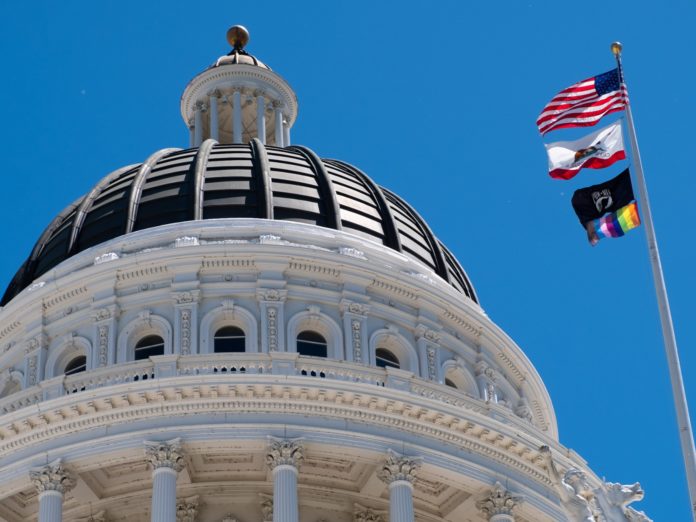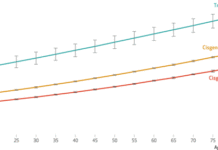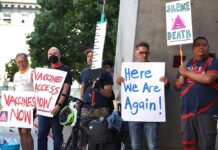
Pride celebrations are planned throughout California this month with Sacramento holding its two day festival this weekend. It’s now been just over 50 years since the first Pride gatherings were held to demonstrate societal and legal inequities affecting lesbian and gay, bisexual, transgender and queer communities.
A lot of progress has been made over those five decades, with Pride events now being more celebrations than protests. But many would say there’s still a lot of work to be done.
Brad Sears is one of the nation’s top experts on that front. He’s the founding executive director of the Williams Institute at the UCLA School of Law, which does research on sexual orientation and gender identity law.
Sears spoke with CapRadio’s Randol White on anti-LGBT legislation from conservative states, supportive state Senate bills, and the future of equal rights.
There is a wave of anti-LGBT legislation being introduced in more conservative states, including, of course, Florida’s well-known “Don’t Say Gay” bill. What are your thoughts on this pivot to using the community as a wedge issue again for political campaigns?
The community is being used, I would say, yet again, as a wedge issue. Now we’re seeing those bills focused mainly on youth and the LGBT community in terms of youth being able to get gender affirming care, participate in athletics, or even learn about themselves and their communities through the school curriculum. This is really an area where California has an opportunity to be a leader and a safe haven.
In terms of leading as a state, are there any supportive bills that you’re following in California that we should know?
Yeah. Senator Scott Wiener has a bill focused on these families where they now are in states that are hostile to them, providing supportive health care and healthy environments for their kids.
Do you know anything about SB 1033 by Senator Richard Pan from Sacramento? It’s a health access bill.
Yeah. It’s a bill really designed to do a couple of things as it relates to the LGBT community do a better job at tracking information about the community. Let me give you one example where kind of having more data really helps. We just recently looked at some national data showing that transgender people have about three times the rate of food insecurity. But when we analyze the data that ask them, are you going to food shelters? What we found is that they had a lower rate of accessing benefits and a lower rate of going to food pantries.
And, you know, the survey asked, why aren’t you going to food pantries? They fear discrimination and negative reactions. And many food pantries are run by religious groups. So they feared being discriminated against based on their gender identity from people that were at the food pantry.
So unless we have that level of data, we don’t know how about going solving the problem. It’s really through better and reliable data that we not only can identify problems but come up with evidence-based solutions.
Does the research done at the Williams Institute leave you feeling optimistic or pessimistic about the future of equal rights?
I think what our research shows is that gaining equality under the law doesn’t guarantee quality in lived experience. And I think when we look at the experience of people of color and of women, we’ve seen the same trajectory. We had great federal laws and state laws passed in the 1960s and 1970s, but the promise of those laws has yet to be achieved. The same is true for LGBTQ people. We have great state laws in this state, but the legacy of discrimination and stigma is that many LGBTQ people still live in poverty, still have housing instability and food insecurity.
CapRadio provides a trusted source of news because of you. As a nonprofit organization, donations from people like you sustain the journalism that allows us to discover stories that are important to our audience. If you believe in what we do and support our mission, please donate today.








